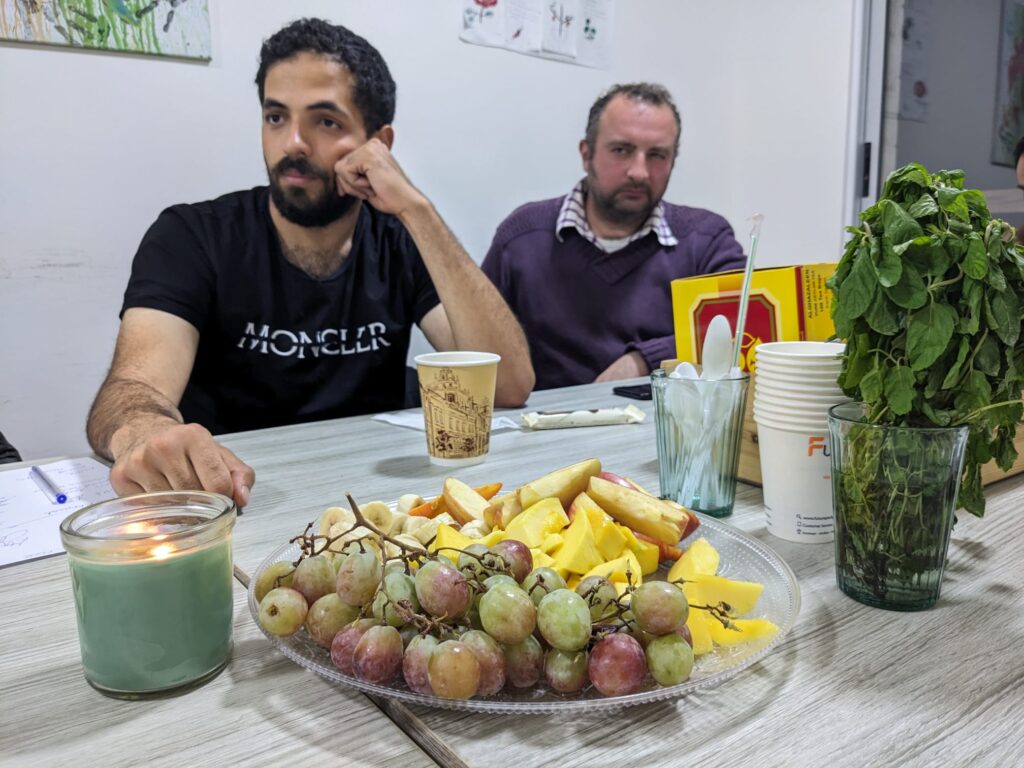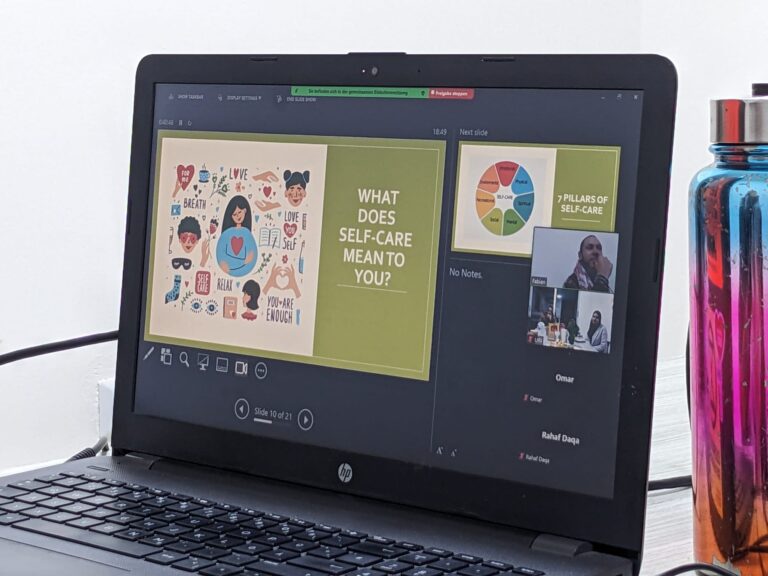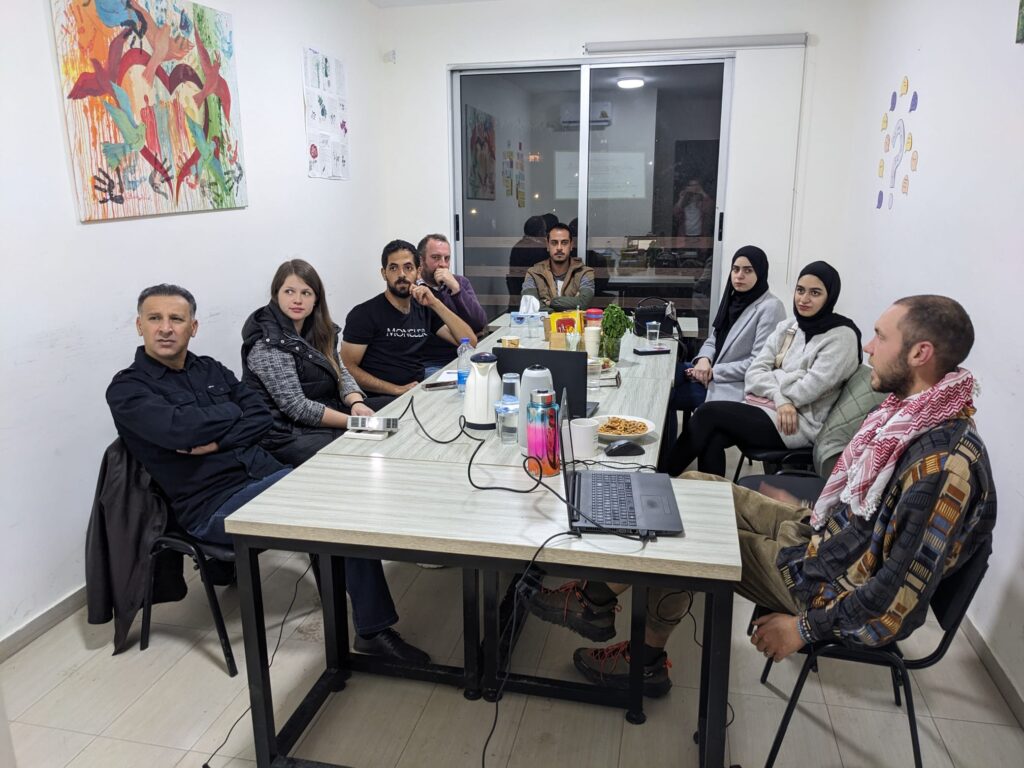December 2023 – Culture Café about Self-care
We have an epidemic of anxiety and depression, everybody feels it.
Taking care of ourselves is becoming more and more important, as there is a global increase in mental health problems, as various studies show. One in two people will develop a mental health disorder in their lifetime, according to a major study by Harvard Medical School. Young people are especially threatened, as 20% of the world’s youth suffer from mental health problems and suicide is the fourth leading cause of death among 15-29 year olds. As we discussed whether this global phenomenon is also visible in Jordan, some participants confirmed that they see mental health problems increasing in society. Although effective prevention and treatment options are available, and mental health conditions can be treated effectively and at low cost, the gap between those who need care and those who have access to it remains significant. Particularly in low-income countries, there is a lack of specialized workforce and government support systems for mental health care. Because there is no one-size-fits-all approach to mental health services and support, we need a whole system of mental health and related health services. This means professionalized health care, but also the implementation of support, skills and awareness in the other structures as schools, community organizations, religious groups and businesses.

Reasons and appearances of metal health problems
We talked about the different forms of mental health problems such as depression, anxiety, body dysmorphia, post-traumatic stress disorder, and many others in order to be more aware of the variety of manifestations of mental health problems. Then we continued to explore the reasons for the development of mental health problems. As we discovered many different reasons for mental health problems such as discrimination, social isolation, abuse, trauma, long-term stress from work and study, unemployment, substance abuse and many others, it became even more clear that we need to take care of ourselves and that there are many risks we need to consider. One of the main causes of mental health problems today is social media and the use of smartphones. So we talked more about how it can cause depression and anxiety, that it affects our sleep, our relationships and our well-being. So we need to be aware of our screen time and how social media affects our mental health and empower us for more “digital detox”.

What is Self-care?
Self-care is one of the most undervalued aspects of life. We often feel guilty about taking time for ourselves, even though we spend a lot of time caring for others and filling our days with activities and responsibilities that stress us out and do not benefit our mental or physical health. Self-care is “the ability of individuals, families, and communities to promote health, prevent illness, maintain health, and cope with illness and disability with or without the assistance of a health professional”. Self-care is whatever we do for ourselves that feels nourishing, which means it is not the same for everyone. Self-care requires that we check in with ourselves and develop an awareness of how we are doing physically, mentally and emotionally. There are 7 pillars of self-care that we have discussed: Mental, Emotional, Physical, Environmental, Spiritual, Recreational, and Social. All of these pillars are important parts of life to maintain our well-being. We talked about each pillar and how we can practically take care of ourselves in all these different aspects. We ended the day by reminding ourselves of the benefits of self-care and the importance of practicing and prioritizing it. Because through self-care we prevent illness, maintain our energy, motivation, well-being, improve our social life, physical health, build capacity to handle stress, and connect more with ourselves and what is important to us. And all the benefits of self-care for us will also benefit our loved ones.

